With the 2024 U.S. presidential election behind us, small businesses are now turning their focus to how the new administration’s policies may impact their operations. According to PwC‘s recent Pulse Survey, 74% of consumer market leaders and 80% of technology executives anticipated significant shifts from the election’s outcome. Now, as economic policies, regulatory changes, and market confidence continue to evolve, proactive businesses can seize new opportunities while navigating potential challenges.
For small businesses, adapting to post-election changes requires more than just staying informed—it’s about preparing for shifts that could reshape tax policies, labor laws, and consumer behavior. With strategic planning, businesses can build resilience to thrive in the months and years ahead.
What the New Administration Means for Your Business
Following the 2024 election, businesses are facing a range of shifts, from tax and trade policies to regulatory changes. PwC’s October 2024 Pulse Survey sheds light on areas of concern and opportunity for business leaders across various sectors. Below is a breakdown of key policy areas small businesses should monitor as they adapt to the new administration’s approach.
Post-Election Economic, Political, and Regulatory Risks
With the election resolved, the business environment is now influenced by new or revised economic policies, regulatory frameworks, and trade strategies. A divided government may lead to slower legislative progress, requiring compromise from both parties. Many executives, 77% according to PwC, expect an increase in executive orders to address policy issues like labor laws, environmental standards, and economic regulation. Such orders could play a critical role in guiding regulatory adjustments that impact small business operations.
The Potential Impact of Unified Government Control
If the outcome led to a single-party sweep of Congress and the presidency, policy shifts could occur more quickly. Unified control allows the administration to pursue significant changes through budget reconciliation, potentially affecting tax codes, labor laws, healthcare policies, and economic regulations. For small businesses, these rapid shifts could mean both challenges and opportunities, as they reshape the landscape across sectors.
.
Key Policy Areas to Watch Post-Election
PwC notes several high-impact areas that businesses should monitor, as election outcomes could influence these topics:
Regulation and Compliance: As policies evolve, regulatory compliance standards may shift, affecting labor, consumer protection, and environmental regulations.
Artificial Intelligence and Cybersecurity: With growing digital transformation, data privacy and cybersecurity protocols may face new compliance requirements, impacting businesses across industries.
Trade Tariffs: Changes in trade policy could alter supply chains and product costs, especially for businesses reliant on imports or exports.
Sustainability Initiatives: Environmental policy reforms could introduce stricter standards on carbon emissions and energy efficiency, influencing manufacturing, retail, and more.
Economic Stability and Consumer Confidence: Post-election economic shifts may influence consumer spending habits, affecting business revenue and planning.
8 Strategies for Small Businesses to Thrive Post-Election
Here are 9 actionable strategies to help small businesses navigate the post-election environment with resilience and adaptability:
1. Monitor Policy Changes and Legislative Proposals
Now that the election is over, staying informed on legislative shifts is critical. Small businesses should closely track any changes in policies related to taxes, healthcare, and labor laws that could directly impact operations. By understanding the newly elected administration’s agenda, businesses can quickly adapt to new regulations, positioning themselves to respond effectively. Regular engagement with reliable news sources or consulting a legal advisor can help clarify how specific policy changes might influence your business and what adjustments may be necessary.
2. Plan for Policy Shifts Under the New Administration
With election results now clear, preparing for potential changes in labor, trade, and healthcare policies is essential. Rather than waiting to be caught off-guard, consider evaluating how the new administration’s anticipated changes could impact your operations. For example, assess possible adjustments if there are shifts in minimum wage laws or healthcare requirements. By creating a flexible, scenario-based budget, small businesses can adapt smoothly to transitions without facing major disruptions, ensuring resilience no matter what policy changes unfold.
3. Strengthen Cash Reserves for Financial Stability
Economic fluctuations often follow major elections, and now is the time to ensure financial flexibility. Building cash reserves will help your business maintain stability as post-election policies are enacted and any economic changes unfold. Aim to have enough funds set aside to cover essential expenses for a few months, if possible. Consider delaying large investments until the new administration’s policies become clearer, especially if market volatility or changes in consumer spending patterns might impact your cash flow. This financial buffer provides a safeguard, giving your business the flexibility to handle unforeseen shifts smoothly.
4. Prepare for Future Civic Events and Community Engagement
While Election Day has passed, it’s still valuable to anticipate and prepare for future civic events, community gatherings, or other high-traffic days that might affect your business. If your location is near areas where public events are common, consider logistical adjustments like modifying hours, offering curbside services, or reserving parking spaces for customers. Clear communication with customers about potential changes will help manage expectations, showing that your business is organized and considerate during busy community times.
5. Focus on Core Products and Services to Strengthen Stability
In times of economic uncertainty, such as the post-election period, consumer spending habits may shift. Small businesses can adapt by prioritizing products and services that provide consistent value to customers, even if discretionary spending decreases. Assess which offerings are most essential to your loyal customers and emphasize these in your marketing and operations. Highlighting your core, resilient products or services allows your business to remain relevant and maintain steady income, regardless of any fluctuations in consumer behavior tied to post-election economic conditions.
6. Seek Guidance from Trusted Advisors on Post-Election Policy Changes
With new policies likely on the horizon, post-election is an ideal time to consult with financial advisors, legal experts, or industry consultants. These trusted advisors can help interpret complex regulatory changes and assess their implications for your business. Their insights can provide strategic direction on managing potential risks and help ensure your business remains compliant and well-prepared. By engaging with experts, you can navigate the post-election landscape with confidence and proactively address challenges that may arise.
7. Engage in Scenario Planning for 2025 and Beyond
With the election results in place, now is the time to map out potential scenarios for the coming years. Develop financial projections that account for different economic conditions—such as growth, stagnation, or downturns—under the new administration’s policies. Conduct a SWOT analysis (Strengths, Weaknesses, Opportunities, Threats) to identify factors that may impact your business based on anticipated policy shifts. This forward-looking approach will allow you to set realistic goals and create a flexible roadmap that adapts to evolving political and economic conditions, helping your business thrive over the long term.
8. Adapt Operations Based on Executive Orders
As new executive orders are implemented, they may directly impact various operational aspects of your business, such as labor practices, environmental standards, and trade requirements. To stay agile, identify which areas of your operations could be affected by specific orders and adjust accordingly. For example, if an executive order introduces new labor standards, consider how to integrate these changes into staffing policies. Regularly reviewing executive actions helps ensure that your operations align with current regulations, keeping your business both compliant and adaptable.

Stepping Confidently Into the Future with Adapting Social
Now that the election is behind us, small business owners have a unique opportunity to refine their strategies and deepen connections with customers, employees, and the community. Adapting to the evolving landscape helps mitigate potential risks and ensures your business remains resilient and poised for growth. Success in this new chapter requires flexibility, forward-thinking, and a proactive approach to engagement and operations.
At Adapting Social, we understand that these times call for strategic support. As a full-service global marketing agency, we specialize in helping small businesses thrive by enhancing brand visibility, refining customer engagement, and building resilience through effective communication strategies. Whether you’re looking to connect with your audience on a deeper level or adapt your marketing to reflect the current climate, we’re here to help you make an impact.
Ready to safeguard your business and step confidently into the future? Reach out to Adapting Social today to learn how we can support your growth in these pivotal times.













